Family Business in Bahrain Recovering from the Crisis and Going International
Adel Fakhro, Group Managing Director of Abdulla Yousif Fakhro & Sons
Our challenge is to foresee the country’s future development. It is developing very quickly, and it is hard for universities to follow its pace. We believe that partnerships with European, Canadian and American universities will help us to do so.
Interview with Adel Fakhro, Group Managing Director of Abdulla Yousif Fakhro & Sons
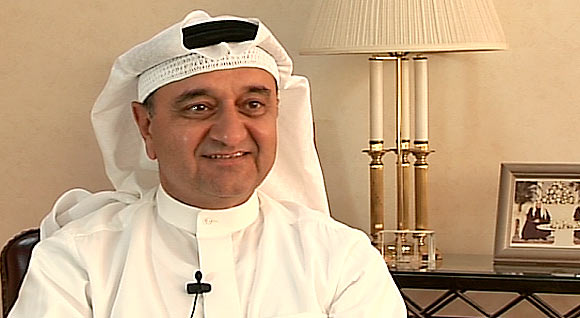
What was the impact of the events that took place in Bahrain in February on the business environment? What is your take on it?
The lowering of the credit rating really is the main cause. Individual businesses to my knowledge haven’t suffered greatly, there hasn’t been withdrawing of credit facilities, canceling of credit lines or anything of that sort.
February 14th was an unprecedented event in Bahrain’s modern history. It had a lot of negative effects on business as well as the social political scene. The biggest problem however isn’t the loss of profits, but the loss of confidence due to the change in Bahrain’s image. It’s important now that we restore the confidence, bring back the investors, show that really nothing is changed.
Banks say that they have enough liquidity to operate, but businesses are complaining that there isn’t enough money.
The lowering of the credit rating really is the main cause. Individual businesses to my knowledge haven’t suffered greatly, there hasn’t been withdrawing of credit facilities, canceling of credit lines or anything of that sort. It is understandable that if the banks perceive a higher risk in lending the rates will go up; but there still is plenty of liquidity in the market.
It is true that the banks weren’t too affected: the credit rates are lowered and there are some positive signs of renewed confidence. Did you notice a change in your numbers?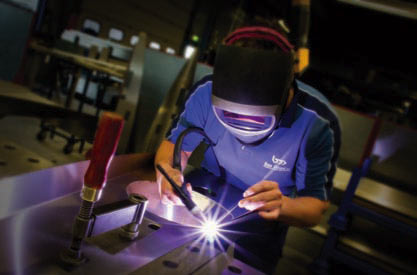
Most of our businesses lost sales and profits during February and March, but they have all been recovering. Some of them (direct cash retail businesses and restaurants) are actually back to pre-crisis levels, and run positive comparisons to this time last year.
People tend to look at Bahrain from a regional point of view, and link it with the Arab spring. How is Bahrain different?
I wish you could stay here longer to take a look around, and see that there is no basis for comparison whatsoever between Bahrain and the 3 other countries of the Arab world that have been subject to political turmoil, namely Tunisia, Egypt and Yemen. The standards of living and the economic development in Bahrain are far superior.
In the past 40 years since the independence, the economic growth has been consistent and positive every year. The average would be around 4-5% GDP compound annual growth since independence in 1971, which isn’t the case of many countries in the Arab world. As you are well aware, the government here is a welfare state: education is free up to university level. Outstanding students get grants and scholarships from the government to study abroad. They get to go to the best universities in Europe and America. Healthcare is free, dental care is free, medication and tablets and drugs are all free. The government subsidizes the basic food products (meat, oil, rice, etc.). Petrol and gas are subsidized. There are no income taxes of any kind.
We have an elected parliament and all the elections have always been certified to be 100% honest and transparent.
Customs duty on imports is something around 5% for most products and for food items it’s even lower than that. The country and the population enjoy a certain standard of living which is not enjoyed in the other countries that we’ve mentioned. Also, other countries in the region have suffered from dictatorship and a total lack of democratic institutions, which isn’t the case in Bahrain.
We have an elected parliament and all the elections have always been certified to be 100% honest and transparent. Numerous institutions and political societies are established in Bahrain since 2001 and there is absolute freedom of expression within the limits of the law. We have a constitution, which was drawn up based on the National Charter which was voted on in 2001 and approved of by 98.4% of the Bahraini population.
The reasons to the events that took place in February are completely different. The unrest was made to look innocent at first. I think that on the back of that, some irresponsible elements weeded their way into the opposition movement in Bahrain, and were backed and supported by Iran and Hizbulla, so the protests became violent, anarchy ruled and they wanted to depose the AlKhalifa rule which is accepted and loved by most Bahrainis.
Obviously Bahrain was not perfect, no country is perfect. There were legitimate demands for more transparency, more freedom of expression, more freedom of the press. But these legitimate demands were infiltrated by these irresponsible members who elevated their demands, to the point where they wanted a change of regime. 
But we Bahrainis consider that such a change would be bad for the country. We are very happy with the rule of the Al-Khalifa family, and the ones who are not are the irresponsible elements of opposition who would benefit from chaos. No responsible citizen of any country would benefit from chaos. The initial movement of opposition, has unfortunately been hijacked by extremists. Things are now back to order.
What do you think the results of this unrest will be in Bahrain in the long term?
It all depends on the National Dialogue which is to begin on 1st July. I’m very optimistic about it. All the parties will come together and try to come up with a better formula that will make more people happy – you can never make everybody happy. Thanks to realistic dialogue, we will have a better state of affairs. And in the long term, this will benefit Bahrain of course. This time next year will be better than this time last year.
In your opinion what should be done to address the issues, what reforms should be implemented?
I think the election process was always transparent. But one of the things that the opposition has been asking for is more powers to the elective house, and less powers to the appointed house. The authorities don’t have any objections to that, and His Majesty the King is ready to discuss this and if necessary give more powers to the lower house. That would mean more transparency and more accountability by the executive branch, so the checks and balances which would benefit everyone in this country.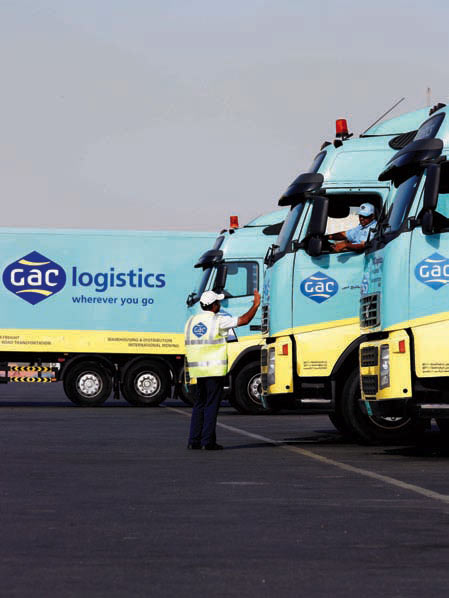
Putting the events aside, how would you define Bahrain and the future of Bahrain?
From our point of view as a group – we’ve been doing business in Bahrain for about 120 years – our recent strategy has been to expand particularly into the GCC market. The legislation has changed in these countries recently, and now their markets are open to us. We want to focus on the geographic diversification of our companies.
What are your regional opportunities for growth?
Clearly, the most attractive market is Saudi Arabia. Unfortunately we aren’t very well represented there. Most of our business is being done in the United Arab Emirates, in Dubai and Abu Dhabi for the last 5 or 6 years. We’ve started businesses in Qatar about 4-5 years ago. Our numbers there are extremely favorable and we are very bullish. But Saudi Arabia is definitely our next ambition. It’s a huge but challenging market, but we expect to be able to face those challenges.
Speaking of which, what are your main challenges now that the business is back to normal, and what challenges do you think you will face in the future?
I think that in any growing any business, the 2 main challenges are people and processes. You need to work with qualified people in order to be able to delegate and embark on profitable expansion. And these qualified people need to be backed up by good processes, control mechanisms, manuals and procedures. One can’t grow without the other. It’s the responsibility of the organization (the board of directors and the shareholders) to provide these people with the good processes.
In more challenging times, such as what has been happening in Dubai for the past 2 years, collections on receivables have become a nightmare. Good organizations need to bear that in mind in order to be able to carry on the business and trading. This is just an example, but there are other examples in HR policies, HR procedures, I.T., etc. Because we’re an organization headquartered here in Bahrain, hoping to have the majority of our business outside of Bahrain, issues of control are of the utmost importance. 
What are some of the processes or control mechanisms you are trying to implement in your organization?
They are very basic mechanisms of control on receivables, cash balances, bank transactions, money movement, legal and contractual obligations, I.T., etc. They seem to be minor and boring details but they are essential. You can hire the best manager, without these, he will not succeed.
What is your vision for the Fakhro brand in the future?
The GCC markets are somewhat contradictory. They are modern and have evolved hugely in terms of customer taste and demand. But they are also very traditional. For example, the business environment is dominated by families that have been doing business for a long time.
Their advantage is that their names are well-known and recognized, and therefore they inspire a certain degree of confidence. A customer’s appetite in any product or service associated with an established name is very positive. Although we avoid using our Fakhro brand in certain markets, because we don’t see an advantage, our name is generally well recognized and beneficial to us as it inspires confidence, particularly with official bodies and lending institutions, banks and investment banks.
What are the growth prospects for the group? What are you aiming for in your strategy?
Our strategy is sectorial. We want to grow in certain sectors only, which vary from market to market. For example, we’re aiming to expand our restaurant business, but we have target markets for that, such as Qatar, Saudi Arabia, Kuwait; but not in the Emirates because we perceive it to be a very competitive market when it comes to restaurants.
Same goes for telecom: we’ve aimed our expansion in the UAE and Qatar, and although Saudi Arabia provides a much larger market, we’ve stayed away from it because it presented other challenges. So our strategy is sector-based as we are a diversified group. The GCC markets are our main focus right now.
You mentioned the restaurant sector, the telecom sector – what are the other sectors in which you are involved? What are the most important ones?
The sectors in which we’ve added the most value are telecom, restaurants and car rental. The telecom were quite easy to expand into other markets, whereas car rental has a low barrier to entry, so competition is more fierce. Restaurants are also a major sector. These 3 sectors are our most exportable value added. 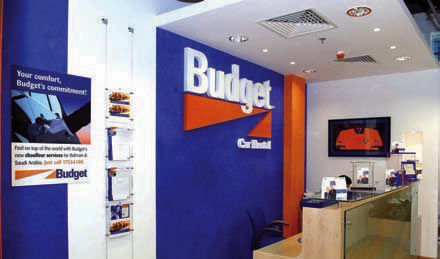
Who are your clients?
With the exception of restaurants, most of our customers are corporates. We tend to stay away from retail. We find the corporate sector more profitable and easier to deal with.
You are one of the oldest groups in Bahrain. Are you considering an IPO in the future or do you wish to stay a family business?
We are not considering an IPO now. We’ve talked about it, especially with the next generation coming in-house. I’m from the 4th generation, my children and nephews and nieces are the 5th. They are coming into the business as active managers now. They have a less traditional way to look at the business and are I think more keen on the idea of an IPO. In reality however, the way we’ve organized our business so far (individual companies and not one holding company and group) doesn’t really lend itself to an IPO.
And until we can build ourselves into one coherent unit which is active in the whole region, we will not consider an IPO. As you know, in more developed economies, the purpose of going public is money and growth. We find that we don’t have any plans for growth right now that would require a great deal of money. This is the case of many families in the Gulf: their expansion plans can easily be funded by their own resources or traditional bank lending, therefore they don’t feel a need to go public and dilute the family’s shareholding.
We are not considering an IPO now. We’ve talked about it, especially with the next generation coming in-house. I’m from the 4th generation, my children and nephews and nieces are the 5th.
The second issue is that a lot of people confuse the issue of corporate governance with going public. I don’t think you need to go public before you can have good corporate governance. Many families are concerned with the influence of boards of directors and shareholders, or how to include their family members into the organization, and so forth.
These are important questions that are very well dealt with by corporate governance, but a lot of families get mixed up. They think: let’s go public so that we can have independent managers look after the family business. But I don’t believe that going public is the only tool.
What is your ambition for the group, what is your dream for the future?
My ambition at this point – and I share the board of directors with 2 of my brothers and 2 of my sisters – is for an orderly transition to the next generation. We’re very proud of our children, nephews and nieces. They’ve all gone to the best schools and universities, and they’re very interested in the business. 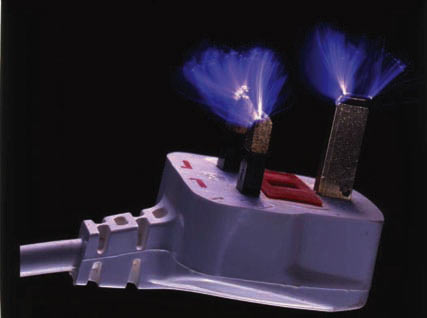
We’re ready to hand over to keep the family business going. You know what they say about family businesses: the first generation builds the business, the second makes it a success and the third wrecks it. Well, we haven’t had that yet. Our next generation are very resilient and enterprising young men and women. This orderly transition is our immediate priority as directors and managers.
When I talk about our strategy for expansion, I’m really thinking of our young ones because none of us members of the board of directors have that driving energy that we used to have anymore. The young ones will be the ones to carry on with the expansion.